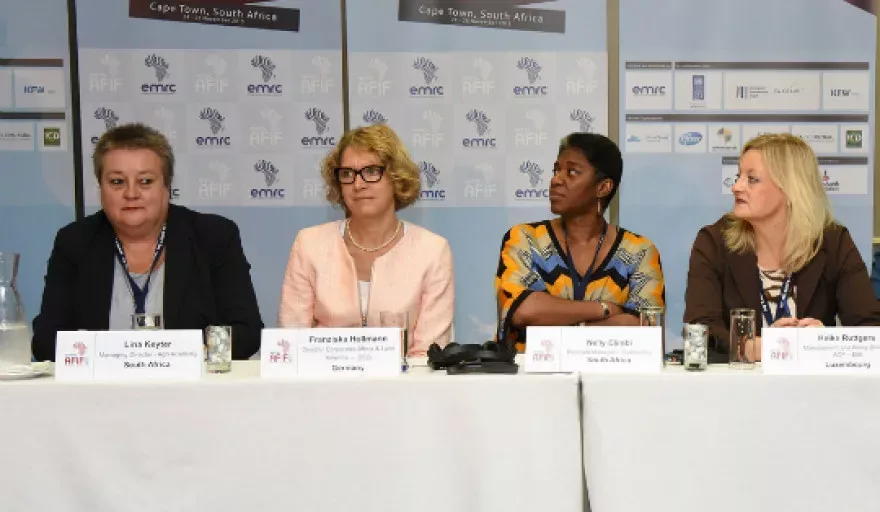The African continent is the second fastest growing area in the world behind South and East Asia, with GDP growth projected to reach 3.6 percent in 2016. APAC Outlook offers an executive summary of Africa Finance & Investment Forum 2015.
Over the past decade, the continent has attracted ever increasing amounts of foreign direct investment, reaching an aggregate amount of US$470 billion between 2005 and 2014, according to the African Development Bank.
But it is not only the volume of investment that has increased. The diversity of investment flows and deals has also seen significant improvement. Where almost all investment went to extractive industries two decades ago, Africa now attracts ever more significant flows in the sectors of energy, telecoms, infrastructure, health and of course agriculture, as well as retail and financial services.
Indeed, in 2015, Africa’s biggest economic challenge is arguably no longer to attract investment, but rather, it is to ensure that investment flows benefit everyone, and to ensure that economic growth is inclusive.
EMRC’s decision to host the 2015 Africa Finance & Investment Forum in Africa for the first time is fully aligned with this trend, and had been a key driver in the decision to host AFIF in the South African city of Cape Town, one of Africa’s emerging global centres of business and finance.
The Forum brought together around 200 key players and decision-makers in the African finance and investment sector, as well as stakeholders from government and civil society from across the continent.
AFIF 2015 included pre-Forum training on “Entrepreneurship/ Presenting a Business Plan” in partnership with Eric Kacou, Founder and Managing Director of the Entrepreneurial Solution Partners.
The theme of this year’s Forum was “Access to Finance and Enterpreneurship”. Over a three day period, the Forum focused specifically on innovative financial solutions to foster the growth of Africa’s businesses, and showcased opportunities of the African continent in the key sectors of agriculture, health, infrastructure, water and energy.
One of the key events of the Forum was the initiation of a far-reaching public-private dialogue on impact investment in Africa, a joint initiative by the United Nations Development Programme (UNDP) and the African Union Commission (AUC).
The concept of impact investment is becoming increasingly well known in Africa and around the world. It refers to investments driven by social and environmental purpose, rather than only financial imperatives; in other words, investing with the goal to achieve measurable social and environmental impacts beyond financial return.
Impact investment is a growing asset class, with some US$60 billion currently under management worldwide. Considering that the demand for SME finance in Africa is estimated at US$140 billion, there is very significant market potential for further growth.
The dialogue provided a platform through which representatives of the public and private sectors discussed concrete interventions to catalyse the impact investment sector and contribute towards the achievement of the African Union’s Agenda 2063, and the recently ratified Sustainable Development Goals (SDGs).
It was intended to initiate a continental discussion around the concept of impact investment, how to attract investors and how to foster enterprise, and specifically social enterprise, to the benefit of all Africans.
AFIF’s traditional plenary sessions were complemented this year with several lively panel discussions involving key global experts on such topics as improving access to finance for SMEs, financing agriculture and agribusiness, financing infrastructure and energy projects, and financing Africa’s health care sector.
The Forum also hosted the AFIF 2015 Entrepreneurship Award, sponsored by the Rabobank Foundation, which saw four selected projects (out of 49 applications) presented to the audience and selection committee.
The pitches were made by Mary Cherop Maritim representing Cherebut Foods (Kenya), Lazaro Mwakipesile managing director of Raphael Group (Tanzania), Adewumi Sule Owolabi from Aerobic Foods (Nigeria) and Wachira Kariuki of Classic Foods (Kenya). Lazaro Mwakipesile was named the overall winner and received a US$5,000 cash prize as well as the commitment by the EMRC team to develop a one-year communication strategy.
For the first time, AFIF also included a special session on “Access to Finance on Health”, and presented the “Pfizer Health Entrepreneurship Award” as well as a pitching session by The Innovation Hub (South Africa), which culminated in the nomination of Markus Labuschagne from Altis Biologics, South Africa.
Behind the scenes, more than 600 business-to-business (B2B) meetings were organised over two afternoons, allowing delegates to establish partnerships, close deals and translate the work at the Forum into tangible reality on the ground.
The Forum was concluded with the Cape Town Declaration on Impact Investment. The Declaration, a UNDP initiative, is the result of the comprehensive dialogue held throughout the Forum and represents a reference for private sector, government and civil society to take action and leverage Africa’s economic potential.
The Declaration calls on investors, governments and the private sector to catalyse and strengthen impact investment in Africa, notably by establishing an impact investment convening organ, by developing conducive and relevant regulatory frameworks, by establishing impact measurement standards, and by creating a dedicated African Impact Investment Fund.
AFIF 2015 was organised by Brussels-based EMRC, in collaboration with the United Nations Development Programme (UNDP), the European Investment Bank (EIB); German Development Finance Institution DEG/KfW, along with Old Mutual Investments Group, Agri Academy, Pfizer, Rabobank Foundation, BlueCloud, ICD and the International Finance Corporation (IFC).































